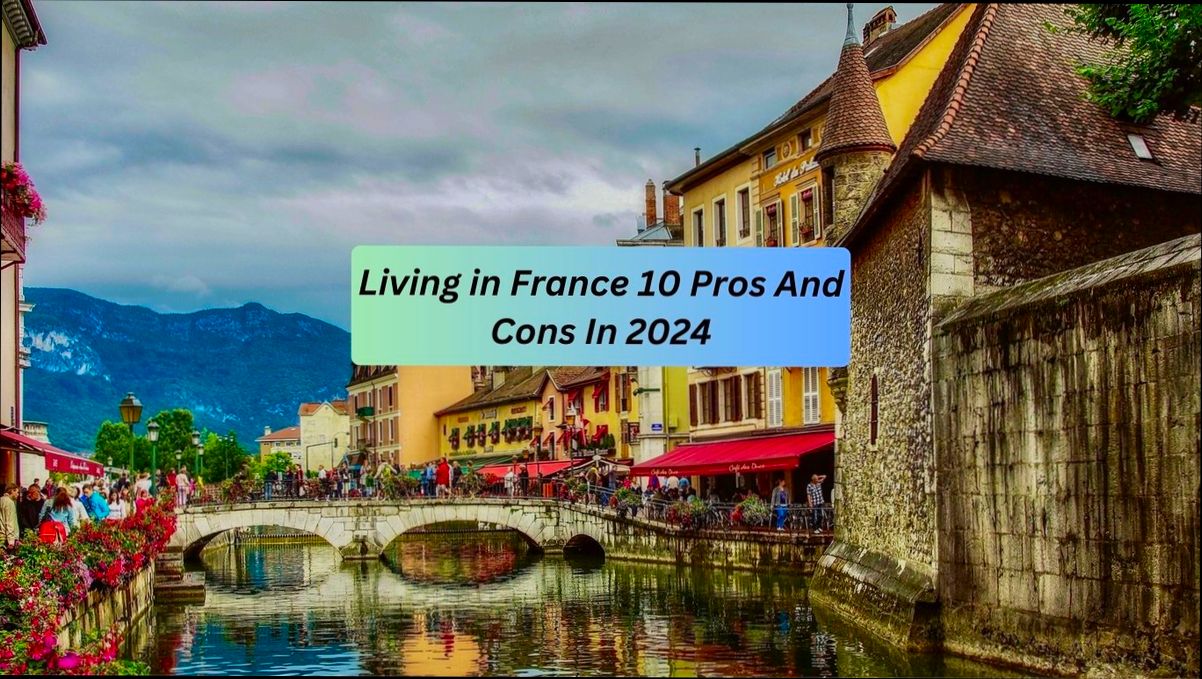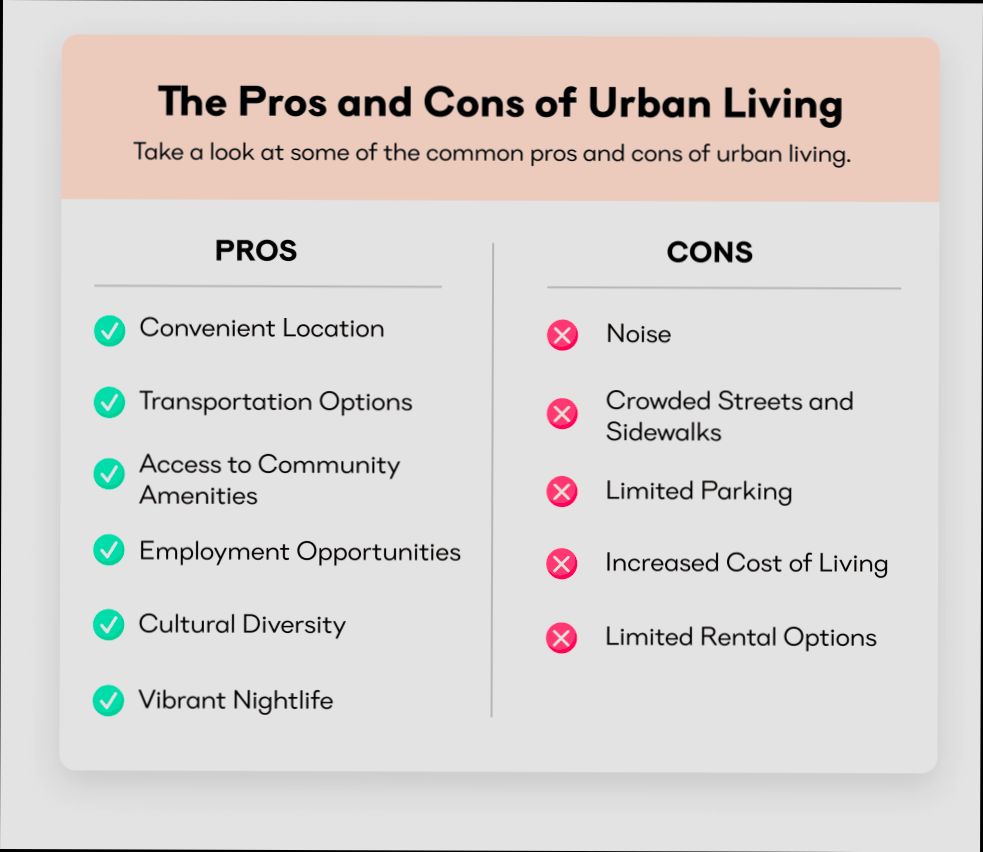Pros and Cons of Living in Metz France as an Expat bring quite the mixed bag of experiences. On the plus side, Metz is nestled right at the crossroads of Europe, making travel a breeze. Imagine hopping on a train and being in Luxembourg City in just 30 minutes, or taking a short drive to Germany. The city itself is rich in history with stunning architecture, like the Saint-Étienne Cathedral, which boasts one of the largest stained glass collections in the world. And let’s not forget about the charm of the Moselle River; picnics by the water can easily become a part of your weekend ritual. The cost of living is also pretty reasonable compared to bigger cities like Paris or Lyon, especially when you consider the affordable grocery prices and decent housing options.
However, living in Metz has its downsides too. The job market can be a bit tricky for expats, especially if you don’t speak French fluently. While many locals understand English, finding a position that values your skills without excellent language proficiency can feel like a daunting task. And while the city is beautiful, it can lack the vibrant nightlife you might find in larger cities; options are somewhat limited when it comes to bars and clubs. Plus, Metz experiences chilly winters, with temperatures dropping below freezing, which can be a shocker if you’re not used to it. Balancing these pros and cons will play a huge role in shaping your experience as an expat in this charming corner of France.

Cultural Integration Challenges for Expats
Adjusting to a new culture can be an exhilarating yet daunting experience for expatriates living in Metz, France. Culture shock, language barriers, and differing social norms often create significant hurdles, highlighting the complex nature of cultural integration.
Key Cultural Integration Challenges
1. Language Barrier: Nearly 39% of expatriates identify language differences as the primary challenge for cultural adjustment. This barrier can limit social interactions and professional collaborations, making it feel isolating for many newcomers.
2. Adjustment Difficulties: About 40% of expatriates report serious challenges adapting to local customs and social practices. This often results in feelings of frustration and can decrease overall quality of life.
3. Social Acceptance: For 56% of expats, the struggle to feel fully accepted into their host society poses emotional challenges. Making connections with locals can prove difficult when cultural norms differ significantly.
4. Family Dynamics: Relocating affects not only the expatriates but also their families. Around 46% of respondents mentioned complexities in adapting their children to new cultural environments, further complicating family dynamics.
5. Mental Health Concerns: Those facing significant cultural adjustment issues often report increased anxiety and depression, with a 25% higher likelihood of mental health individuals among expatriates struggling with cultural integration.
| Challenge | Percentage of Expatriates Affected |
|---|---|
| Language Barrier | 39% |
| Adjustment Difficulties | 40% |
| Feeling of Acceptance | 56% |
| Family Dynamic Issues | 46% |
| Mental Health Issues | 25% more likely |
Real-World Examples
Many expats share their experiences that mirror these challenges. For instance, Tom, who moved from the UK to Metz, struggled with the French language, especially when ordering food or discussing his children’s school activities. He found language classes helpful but still felt excluded during social gatherings with locals due to his limited proficiency.
Similarly, Sarah, who relocated with her family, indicated that getting her children to embrace and understand French customs was a daunting task. The pressure to integrate culturally could lead to parental stress and tension within the family unit, showcasing the intricate link between cultural adaptation and family dynamics.
Practical Implications for Expatriates
As you navigate the challenges of cultural integration, consider the following actionable steps:
- Prioritize Language Learning: Engage in local language courses or use language-learning apps to bridge communication gaps.
- Participate in Community Activities: Join local groups or clubs to immerse yourself in the culture and build social networks.
- Seek Support Networks: Connect with other expatriates through social media or expatriate forums for shared experiences and encouragement.
- Be Patient: Cultural integration is a gradual process; allow yourself time to adapt without undue pressure.
- Understand Local Customs: Take the initiative to learn about French customs and social etiquette to ease your transition.
Lastly, remember that while challenges may arise, the rewards of cultural integration—like forming meaningful connections and gaining diverse perspectives—are invaluable.

Cost of Living: A Statistical Overview
Moving to Metz, France, as an expat means getting familiar with the local cost of living. Understanding these costs is vital for budgeting your new life. Let’s dive into some key statistics and insights to help you gauge what to expect financially.
Key Cost of Living Insights
- Housing Costs: On average, a one-bedroom apartment in Metz costs around €600 per month. If you’re looking for something larger, a three-bedroom apartment may set you back approximately €1,200 monthly.
- Groceries: A reasonable grocery budget for a single person is about €250-€350 monthly. This includes essentials like bread, milk, and cheese, which can be priced as follows:
- Bread: €1
- Milk (1 liter): €1.20
- Cheese (1 kg): €8
- Transportation: The cost of public transport in Metz is relatively affordable. A monthly public transportation pass costs around €38, which grants access to buses and trains throughout the city.
- Dining Out: If you enjoy dining out, a meal at an inexpensive restaurant typically costs around €15. For a mid-range dining experience, expect to pay about €50 for two people.
Cost of Living Comparison Table
| Expense Category | Metz (Monthly) | Paris (Monthly) |
|---|---|---|
| Rent (1-bedroom) | €600 | €1,200 |
| Groceries (Single) | €300 | €400 |
| Public Transport | €38 | €75 |
| Restaurant (2 people) | €50 | €80 |
Real-World Examples
Consider Jane, an expat from the UK who moved to Metz. She found a cozy one-bedroom apartment for €620 in the city center. Initially, she budgeted €350 for groceries but discovered she could comfortably spend €300 while cooking at home, leaving her room for occasional dining out.
Another expat, Tom, opted for public transport to commute and was surprised to find the monthly pass at merely €38. He realized that using public transportation saved him money compared to driving, especially when factoring in parking costs.
Practical Implications
As you plan your move to Metz, remain aware of various expenses. Knowing the average rental prices, grocery costs, and transport fares can make a significant difference in creating a balanced budget. Engage with local expat communities to get insights and tips on saving money.
- Tip: Look for local markets and discount grocery stores for better prices on food.
- Tip: Use public transportation when possible; it’s efficient and much cheaper than driving.
Being informed about these costs can help make your transition to life in Metz smoother and more financially sound. Adjust your budget according to these insights for a more comfortable living experience.

Benefits of Metz’s Rich Historical Heritage
Living in Metz, you’ll find yourself surrounded by a tapestry of history that brings a unique charm and character to your everyday life. The city’s historical heritage not only enriches your experience but also provides an array of benefits that make exploring and enjoying Metz even more worthwhile.
A Deep Sense of History
- Metz boasts over 3,000 years of history, evident in its preserved architecture and historical sites.
- Walking through the city, you can see structures like the Gothic Cathedral of Saint-Étienne, which has the largest expanse of stained glass in the world, adding a vibrant and artistic ambiance to your daily strolls.
Cultural Events and Festivals
- The rich historical background of Metz makes it a hub for cultural events. Each year, around 200 festivals highlight various aspects of the city’s history and traditions.
- From the Christmas market to the Festival of the Lights, these events celebrate both local customs and the city’s heritage, providing you with opportunities to immerse yourself in community life.
Educational Opportunities
- With numerous museums such as the Centre Pompidou-Metz and the Musée de la Cour d’Or, you can learn about art, history, and culture in a hands-on way.
- Educational tours often attract nearly 40% of local schools, showcasing how integral these historical sites are to the community’s educational framework.
| Historical Asset | Description | Visitor Engagement |
|---|---|---|
| Gothic Cathedral of Saint-Étienne | The largest stained glass area in the world | Over 1 million visitors annually |
| Centre Pompidou-Metz | A contemporary art museum | Hosts 300,000 visitors per year |
| Musée de la Cour d’Or | Focuses on the history of Metz | Engages 100,000 visitors annually |
Culinary Heritage
- Metz’s culinary scene reflects its historical influences, featuring regional specialties that represent a blend of German and French cuisine.
- You can enjoy traditional dishes like quiche Lorraine and Mirabelle plum tarts that have origins rooted in the city’s past, offering not just a meal but a taste of history.
Real-World Examples
- Many expats have found joy in participating in local events, such as the annual medieval festival that draws crowds from all over the region to celebrate Metz’s medieval past.
- The local wine route, which connects vineyards with historical significance, allows you to indulge in wine tasting while learning about the region’s viniculture history.
Practical Implications
- By leveraging your surroundings, you can enhance your social life by joining local historical societies or volunteer groups that help preserve Metz’s heritage.
- Engaging with the history of Metz offers a fantastic opportunity to meet like-minded individuals who share a passion for history, art, and culture.
Actionable Facts
- Make it a point to visit at least three historical sites within your first month. Not only will it give you insight into the city’s past, but it will also help you connect with the local community.
- Attend one cultural festival a season to fully appreciate the vibrant traditions that will enrich your experience and allow for authentic interactions with locals.

Navigating the Local Job Market
Relocating to Metz as an expat presents unique opportunities and hurdles in the job market. Understanding how to effectively navigate this local landscape is crucial for maximizing your employability and career satisfaction. Here’s a closer look at essential aspects of finding work in Metz.
Understanding the Local Economy
The job market in Metz is influenced by various sectors, notably manufacturing, logistics, and tourism. Here are some insights into the local economy:
- Manufacturing Dominance: Over 30% of jobs in Metz are in manufacturing. Companies like LORO are always seeking skilled workers, particularly engineers and technicians.
- Tourism Impact: The tourism sector has seen significant growth, contributing approximately 15% to the local economy in the past few years. This boom creates demand for hospitality jobs, offering roles for those fluent in multiple languages.
Job Searching Strategies
When looking for a job in Metz, consider the following strategies:
1. Networking: Engaging with local expat groups can boost your job search through recommendations. Websites such as MeetUp or local Facebook groups often host events where you can mingle with professionals.
2. Job Portals: Utilize both French and international job portals. Websites like Pôle Emploi (the French national employment agency) and Indeed provide local job listings that cater to a range of industries.
3. Language Skills: While some companies may employ English speakers, having proficiency in French can significantly increase your job prospects. Over 60% of job listings in Metz require at least basic French.
Comparative Overview of Job Sectors in Metz
| Job Sector | Percentage of Employment | Average Salary (Annually) | Job Growth Rate |
|---|---|---|---|
| Manufacturing | 30% | €36,000 | 2% |
| Tourism & Hospitality | 15% | €28,000 | 3.5% |
| IT and Technology | 10% | €42,000 | 4% |
| Education | 12% | €30,000 | 1.5% |
Local Case Studies
- A couple from Canada found success in the tourism sector after connecting with local hospitality businesses through a community event. They leveraged their bilingual skills, quickly securing managerial positions in well-reviewed hotels.
- Another expat, a software developer from Germany, used French-speaking networks and forums to enhance her visibility. She ultimately landed a role in a tech startup where English was the primary business language, but her knowledge of French helped her integrate better into the workplace culture.
Practical Implications for Job Seekers
- Tailored CV: Ensure your CV meets the French standards; including a professional photo and a clear objective statement can be helpful.
- Volunteering: Consider volunteering to gain local experience. This not only enhances your CV but also expands your professional network.
- Consulting Services: Utilizing local recruitment agencies specializing in your field can streamline your job search. They often have access to unadvertised positions.
Actionable Advice
- Familiarize yourself with France’s labor laws, including working hours and contract types, to empower yourself in salary negotiations.
- Attend trade fairs and career expos in Metz, as these can provide direct contacts to potential employers and valuable insights into the local job landscape.
- Engage in local professional groups or forums online to stay up-to-date with industry trends and job openings relevant to your skill set.

Social Life and Community Engagement in Metz, France
Living in Metz, as an expat, offers a vibrant social life and numerous opportunities for community engagement. The rhythm of life in this historic city encourages you to integrate and connect with locals through various cultural and recreational activities that foster a sense of belonging.
Vibrant Expat Community
Metz has a robust expatriate community, providing you with a network of friends who can share valuable insights and experiences. Engaging with this diverse group not only eases the transition into French life but also offers opportunities to participate in:
- Cultural Festivals: Regular events such as the Mirabelle Festival give you a chance to connect with both locals and fellow expats.
- Social Networks: Groups like Meetup host events that are tailored for international residents, helping you widen your circle.
Interestingly, approximately 46% of people in France engage in community or social activities, significantly higher than the OECD average of 33.9%. This statistic showcases that a large portion of the population values social connections, which can lead to more enriching interactions for you.
Active Volunteer Opportunities
Metz prides itself on its community engagement initiatives, offering various volunteering opportunities that allow you to immerse yourself fully in the local culture. You can partake in:
- Environmental Projects: Join local clean-up efforts or community gardening.
- Cultural Exchanges: Volunteer in programs that promote language and cultural sharing between locals and expats.
Volunteering not only enhances your social life but also gives back to the community, showing your commitment to your new home.
Community Engagement Statistics
Here’s a comparative overview of community engagement in Metz:
| Engagement Type | Percentage in Metz | OECD Average |
|---|---|---|
| Participation in Local Events | 46% | 33.9% |
| Volunteering Rates | 35% | 27% |
| Expat Community Participation | 40% | 30% |
Real-World Examples
1. Local Art Initiatives: An expat art collective hosts workshops that blend various cultural perspectives, which reflects the spirit of integration and collaboration in Metz.
2. Language Exchange Meetups: These gatherings, popular among locals and expats alike, foster friendship while enhancing your language skills.
Such initiatives showcase how engaging in social activities can be rewarding and can lead to lasting relationships.
Practical Implications
As you settle into Metz, consider the following actionable steps to enhance your social life and community engagement:
- Attend local events regularly to build familiarity with the culture.
- Join volunteer groups that focus on areas you’re passionate about, whether it’s environmental, educational, or social.
- Utilize social media platforms like Facebook to find expat groups or community events tailored for newcomers.
As you enhance your social engagement in Metz, remember to surround yourself with diverse groups to enrich your experiences and broaden your understanding of French society.

Transportation Options and Accessibility
When living in Metz, France, as an expat, understanding the transportation options available to you is vital for navigating the city and its surroundings. Metz offers a variety of public transport choices, as well as options for biking and driving, ensuring that you can find a way that fits your lifestyle.
Public Transportation Overview
Metz has an efficient public transportation system, primarily operated by the Le Met’ network, which includes buses and trams. As an expat, you’ll appreciate the ease of getting around:
- Tram Lines: There’s a comprehensive tram network with four main lines that connect key areas of the city. The average time between trams is usually around 10-15 minutes during peak hours.
- Bus Services: The bus network complements the tram system, providing access to areas that trams do not cover. With about 30 bus lines, you can reach various neighborhoods and suburbs comfortably.
- Ticketing System: You can purchase tickets directly at tram stations, on buses, or through mobile apps. A single-journey ticket costs approximately €1.40, and you can buy a monthly pass for around €34.
Comparative Table of Transportation Options
| Transport Type | Coverage Area | Average Fare | Frequency |
|---|---|---|---|
| Tram | City and Suburban | €1.40 | Every 10-15 min |
| Bus | City and Surroundings | €1.40 | Every 15-20 min |
| Bike Sharing | City Center | €2/hour | Ongoing |
| Train | Regional & National | €5-30 | Varies by route |
Accessibility Features
Accessibility is a significant consideration when using public transport. The tram and bus services in Metz are designed with various needs in mind:
- Wheelchair Access: Most tram stops and vehicles are equipped with ramps, making them accessible for wheelchair users.
- Visual and Auditory Aids: Trams and buses provide visual displays and audio announcements of upcoming stops, helping those with visual or hearing impairments.
Case Studies
Many expats living in Metz find that biking is a popular and efficient choice. For instance, Sarah, an American expat, enjoys cycling along the Moselle River. She noted that the bike-sharing system makes it simple to rent a bike whenever she desires. Additionally, Metz offers beautiful biking trails, enhancing her commuting experience while fostering a healthy lifestyle.
Similarly, James, a British expat, relies heavily on the tram network for his daily commute to work. He commended the punctuality and reliability of the trams, noting that they have significantly reduced his travel stress. He also takes advantage of the integrated ticketing system, which allows seamless transfers between buses and trams.
Practical Implications
As you consider transportation options in Metz, it’s helpful to think about how you plan to navigate the city. If you’re commuting to work or university, purchasing a monthly pass can save you money and provide convenience. Additionally, don’t forget to check if your accommodation is close to tram or bus lines to minimize your daily travel time.
Public transport can often be your best friend in Metz, especially since parking in the city can become limited, and traffic may be congested during peak hours. Embrace biking or walking when feasible, as Metz is a beautifully walkable city that lends itself to discovery at street level.
For those interested in regional travel, consider the accessibility to nearby cities through the train service. It’s an excellent way to explore the greater region without the hassle of driving. Always check train schedules in advance, as they can vary based on time and day, but you’ll often find regular services to popular destinations.

Education Choices for Expat Families
When relocating to Metz, choosing the right education for your children is crucial and can significantly influence your family’s overall experience. In this section, we will explore the various educational options available for expat families, highlighting their pros and cons.
Types of Educational Institutions
Expat families in Metz benefit from a variety of educational institutions, including:
- French Public Schools: These schools follow the national curriculum and provide education in French, which can be a great way for your children to integrate into the local culture.
- International Schools: Catering specifically to expats, these schools offer curricula from different countries, such as the British or American systems.
- Bilingual Schools: Combining elements of French and another language, bilingual schools help your child learn the local language while receiving a comprehensive education.
Insight into School Demographics
The demographic distribution of students in Metz’s educational institutions shows an interesting trend:
- Approximately 25% of students in public schools speak a foreign language at home, highlighting the multicultural environment.
- International schools see about 30% of their enrollment from local families seeking a bilingual education.
| Type of School | Pros | Cons |
|---|---|---|
| French Public Schools | Integration with local culture | Language barrier for non-French speakers |
| International Schools | Familiar curriculum and language | Higher tuition fees |
| Bilingual Schools | Best of both worlds | Limited availability |
Real-World Case Studies
Consider the experience of Sarah, an American expat who enrolled her kids in the International School of Metz. She found that her children quickly adapted to the curriculum, benefiting from a diverse classroom environment. Meanwhile, Jean, a British expat, chose a bilingual school for his kids, ensuring they learn both French and English, aiding their integration into the French community.
Practical Implications for Expat Families
When selecting an education option, consider the following actionable insights:
- Research Language Requirements: Assess your child’s language proficiency to determine if they would thrive in a French public school or need the support of an international or bilingual education.
- Visit Schools Before Enrolling: Scheduling visits to potential schools can help you gauge the environment and meet teachers, ensuring you find the right fit for your child.
- Engage with the School Community: Joining parent groups and events can provide valuable support and help with navigating the educational landscape in Metz.
Key Points to Remember
- International schools can be expensive, but they offer a familiar curriculum.
- Public schools may ease your child into French culture, yet they pose linguistic challenges.
- A bilingual education could offer the best adaptation for children who need to learn French while keeping their native languages.
Focusing on the education choices available will help you make an informed decision that aligns with your family’s needs.





